61. 70 Years of Nigerian Music
On Popcentral's artistic exploration of Nigeria's music traditions
One thing I dislike about spending time outside Nigeria is the FOMO related to cultural events happening in Lagos. I bite my finger when something happens in Lagos that I cannot partake in. Make no mistakes, I spend good time in my home city, Lagos. But London is where I make most of my income. This means sometimes I cannot attend that concert, that conference, that colloquium. This was also how I felt about Popcentral Exhibition, 70 years of Nigerian music, which was open to the public in December 2024.
But what God cannot do does not exist.
I was privileged to receive an exclusive invitation to see the exhibition even after it had shut its doors to the public. I was in Lagos for the post-Xmas aspect of Detty December. This had some advantages. Everywhere was less of a beehive. My Uber driver complained slightly about how the days before Christmas were the peak of his earnings. I glimpsed a smile around the corner of his mouth. There was an unusual traffic bottleneck on Akin Adesola, Victoria Island. Mr President was celebrating Xmas at Bourdillon, and the security protocol was to block roads around his travel route minutes before his presidential fleet, which had no less than 100 cars, set out.
I arrived fashionably late at Popcentral and was kindly shown around by a young lady who worked on the exhibition (Let’s call her D). We had to be quiet as a film crew was filming. The co-curators’ statements made me smile. It was co-curated by Ayomide Tayo and The Jide Taiwo, two veteran journalists with whom I have been fortunate to interact. Although I haven’t met these men in person, their good work precedes them—and their presence brought some rigour to the exhibition.
Seventy years of Nigerian music is an artistic exploration of musical legacy and heritage. The curators provided the template and timelines of the music history, which was then reinterpreted by early-career visual artists selected for a short residency in Lagos. Their task was to respond to the briefs on Nigeria’s music history in creative ways, using metalwork, painting, photography, collaging, and more, which added a unique and intriguing dimension to the exhibition.
There’s more.
This multi-media exhibition transcended visual perceptions. There was a room where carefully curated classic Nigerian music could be enjoyed. Although I could not access the room in its functional state, I saw the padded room with its relaxing ambience. Every music lover knows that music is a supremely efficient time machine. Older people had a good time here; in the hallowed privacy the room afforded, they danced. D mentioned an old couple that attended the cool room. She caught a glimpse of them holding hands in a slow dance. Music accentuates nostalgia, recharges affection.
The artworks were available for sale and reasonably priced as the artists—Segun Okewumi, Etienne Benedict Akpan, Bara, Adeola Dayo Cyrus, Michael Omotoso, Victor Obot, Ifeoluwa George, etc—are mainly in the early stages of their career. It was an investment worth exploring, but as a good husband, I took pictures that I showed my wife. I considered Magret Nze’s painting High on Life of IK Dairo playing the accordion (in my reckoning, Dairo is playing ‘Oju Momi Si Pere Ode’), but she preferred the already acquired Barrister Sikiru Ayinde by Faith Omole.
After seeing the exhibition, I sat with the exhibition’s chief curator and founder of Popcentral, Mr Yinka Obebe, and his lovely wife. We had a stimulating conversation about Nigerian music. We spoke about archiving in Nigerian music, and they shared their stories about collaborating with legacy record labels in Nigeria. I told them about my work archiving the 100-year-old Juju music on the web and my challenges.
Archiving Nigeria’s history, particularly its rich musical heritage, has been left solely to the agitation of individuals without government support. This lack of institutional support is a cause for concern, as one is likely to be met with state resistance, however passive. The presidential blockade was not a fleeting metaphor; it was hyperrealism.
My main criticism of this exhibition is that it should be open to the public for much longer. Also, such an immersive and sensory experience deserves its archive! I was glad when Mr Obebe said a coffee table book was in production. I hope that the coffee table travels beyond bougie cafes and Lekki mansions, down the Third Mainland Bridge, into the hands of children with a fascination for history so that these stories and curiosities are passed down.
PS: I took all the wonky pictures. The final picture of Yinka Obebe and me was courtesy of one of Popcentral’s staff; the camera phone was mine!




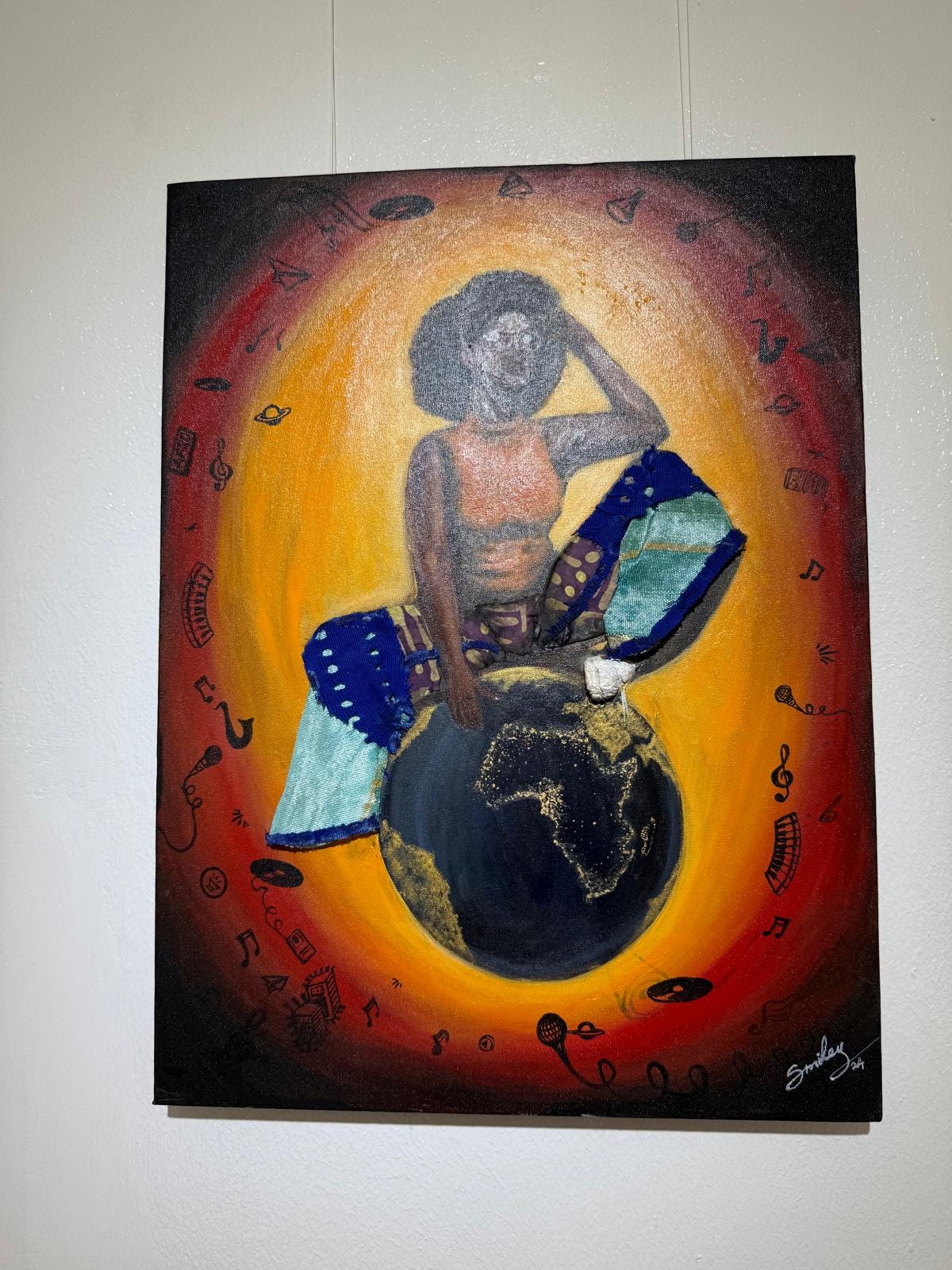
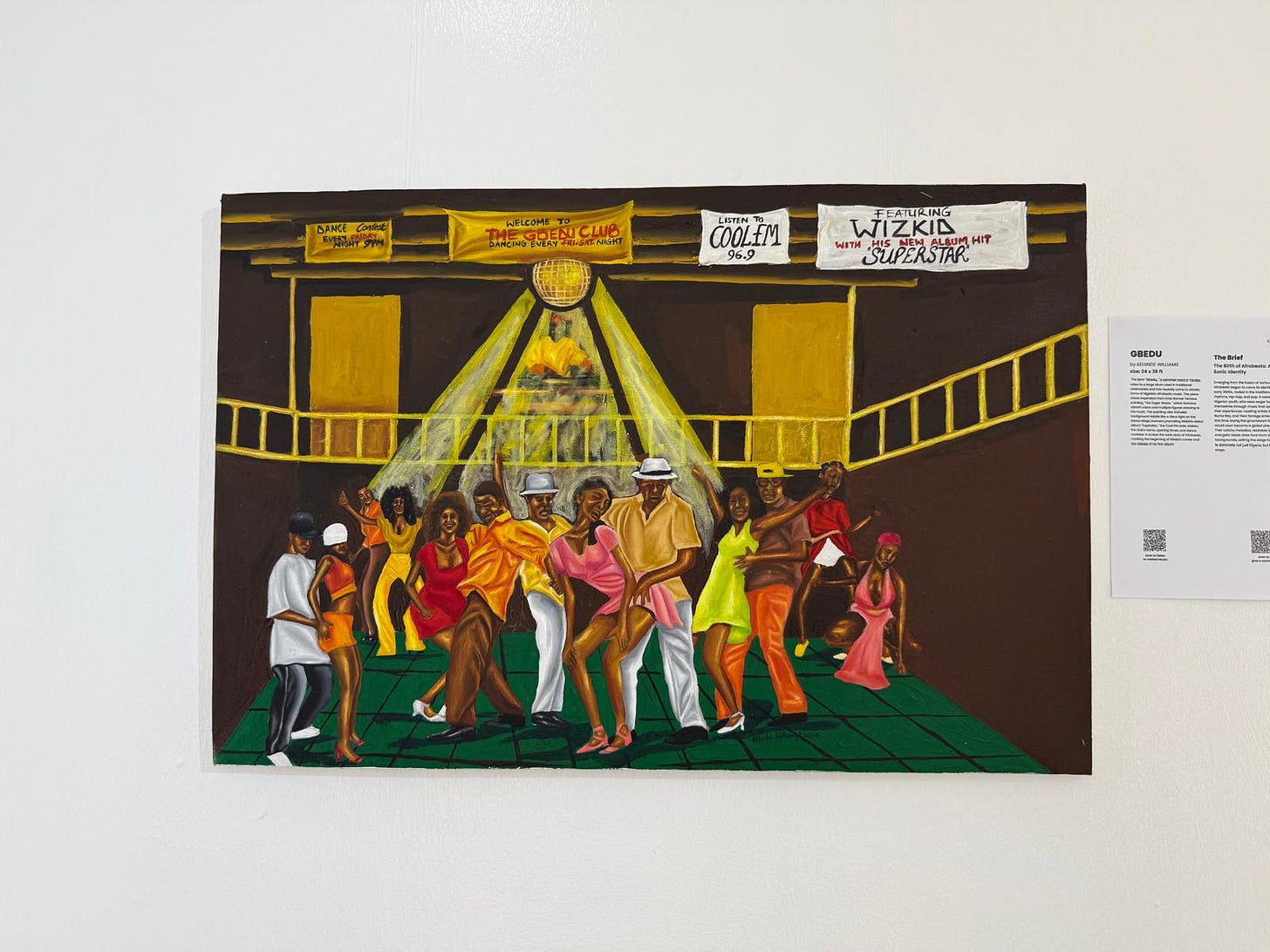
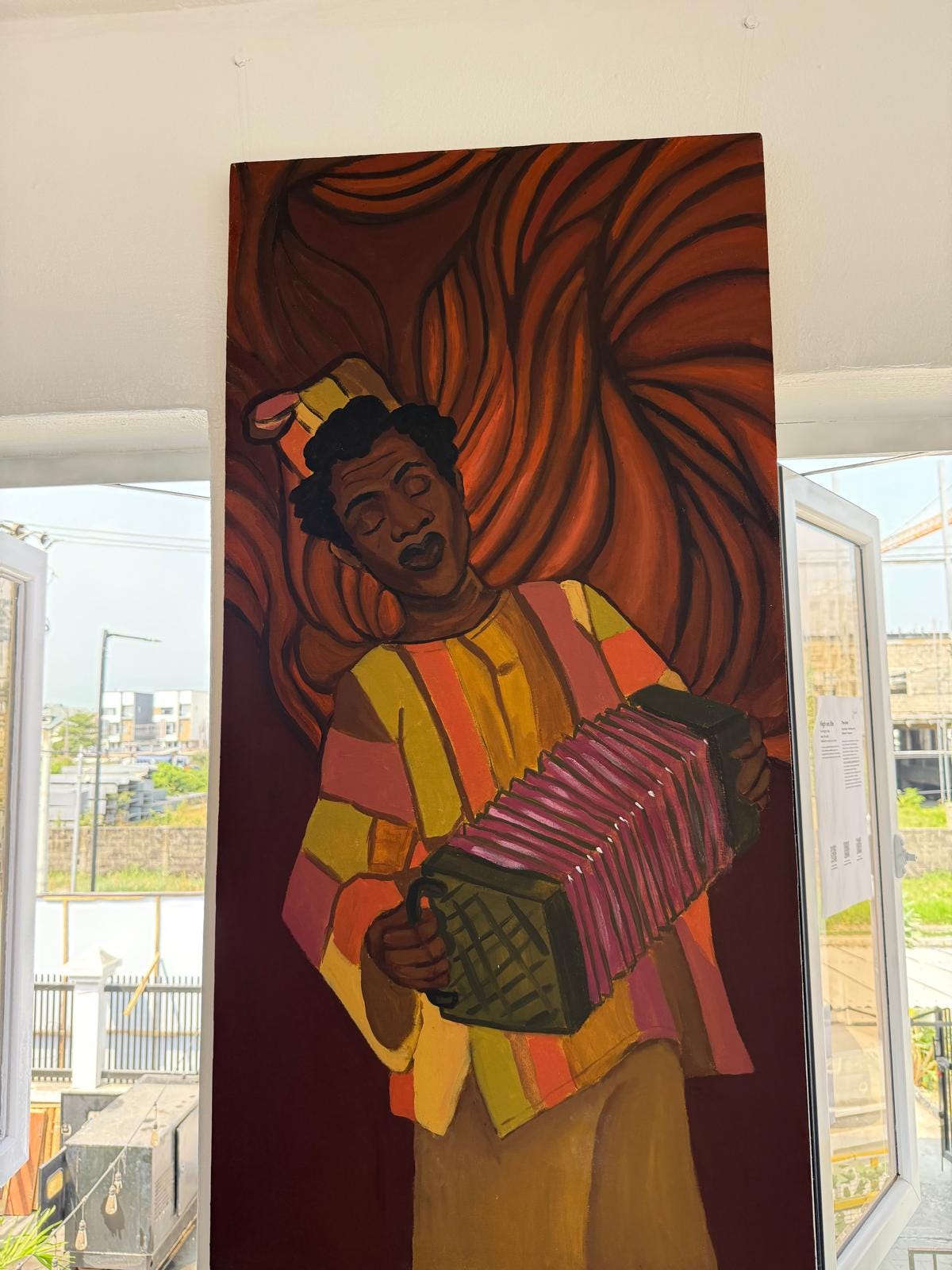
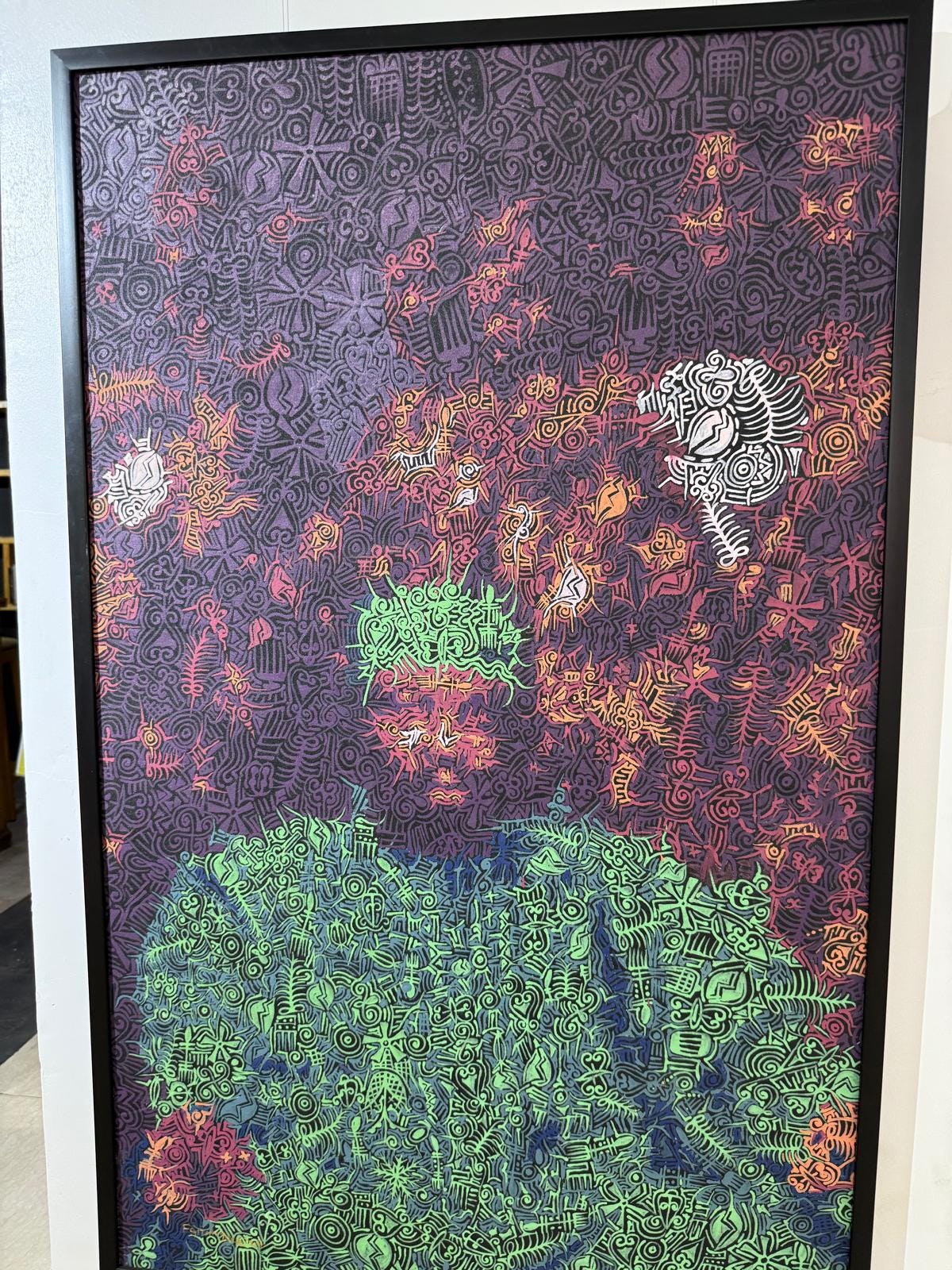
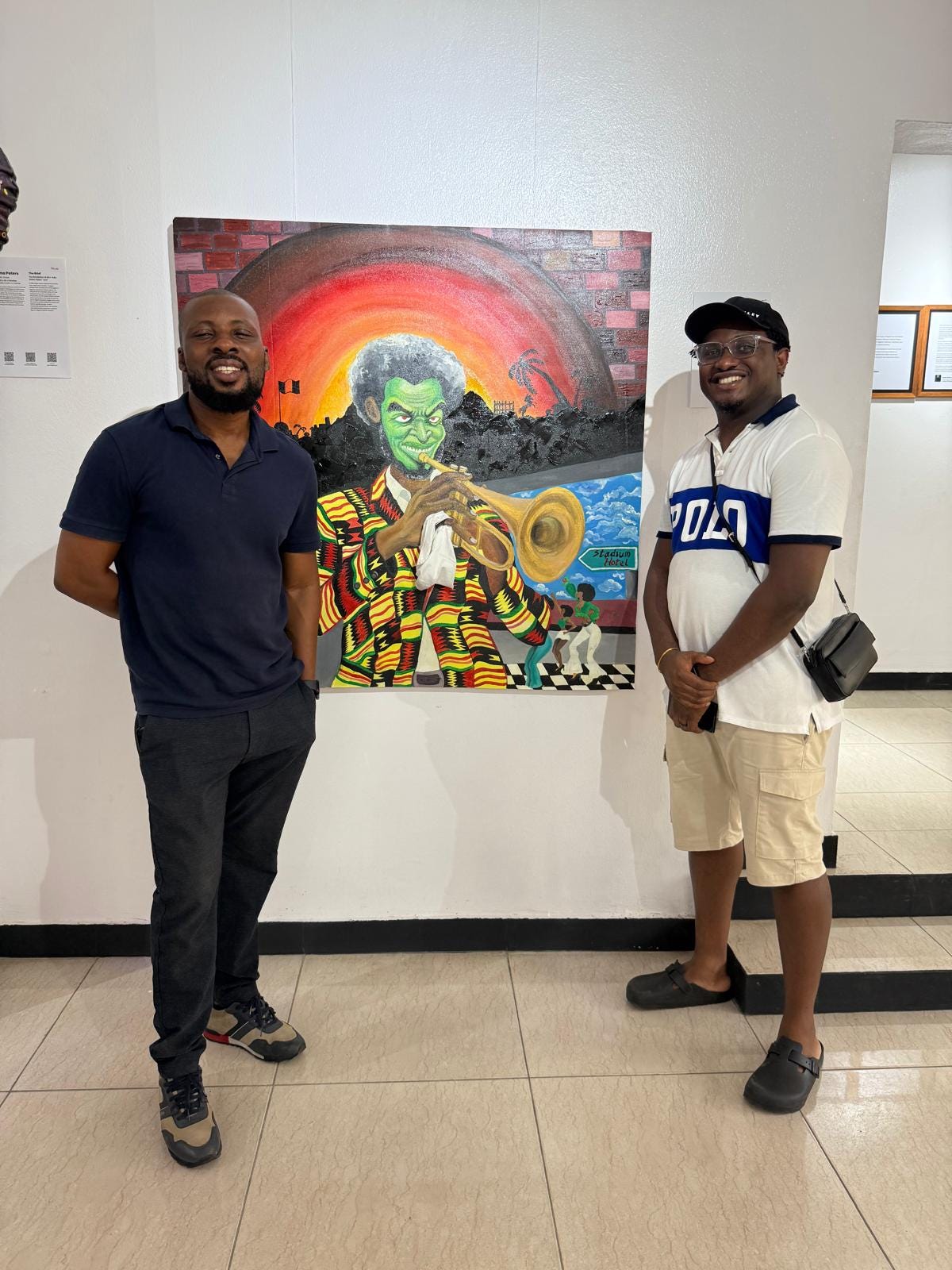
This is a great addition to the complex task of contextualizing Nigerian music’s place in history. Hopefully, writers get a chance to engage more with it in the future.
This is actually so cool and I didn't even know an exhibition like this happened. It would be cool, like you said, if it was open to the public longer and if they publicize more so that connoisseurs, enthusiasts, and the curious can engage with it. Thank you for sharing 🤗